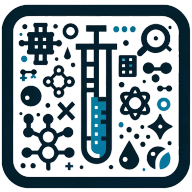6 Drug Testing in Professional Sports: Ethical Considerations
Drug testing in professional sports has become a complex battlefield of ethics and integrity. As athletes push the boundaries of human performance, the line between innovation and unfair advantage grows increasingly blurred. This article delves into the ethical considerations surrounding 6 drug testing, exploring the delicate balance between maintaining fair competition and respecting athletes' rights.
- Balancing Integrity and Innovation in Sports
- Reconciling Privacy and Fair Competition
- Navigating Therapeutic Exemptions in Drug Testing
- Adapting Tests to Evolving Performance Enhancers
- Harmonizing Global Drug Testing Standards
- Prioritizing Athlete Health Over Short-Term Gains
Balancing Integrity and Innovation in Sports
Drug tests in professional sports play a critical role in maintaining the integrity of competition, but they also raise complex ethical questions--especially when you consider that many elite athletes aren't necessarily aiming to be "healthy"; they're pushing their physiology to the edge to perform, win, and break records. Professional sports at that level are less about wellness and more about maximizing output, often at the expense of long-term health.
From that lens, the ethical consideration becomes: where do we draw the line between natural enhancement--like altitude training, legal supplements, and recovery tech--and pharmaceutical or hormonal manipulation? Drug testing attempts to draw that line, but it's not always clear or consistent. The real challenge lies in fairness. If one athlete is following the rules and another is chemically enhancing performance undetected, it undermines the entire purpose of sport as a level playing field.
That said, some argue drug testing policies need to evolve with the science. We're seeing advancements in peptide therapy, gene expression, and recovery aids that blur the traditional definitions of "doping." The ethical tightrope is balancing innovation and performance with safety and fairness.
Ultimately, drug tests should exist to protect the core spirit of competition and ensure that victories are earned, not engineered. But the bigger conversation is understanding that these athletes aren't just chasing health--they're chasing human limits. And that pursuit, by nature, will always press against ethical boundaries that must be carefully examined, not blindly enforced.

Reconciling Privacy and Fair Competition
Drug testing in professional sports raises important questions about privacy and fairness. Athletes have a right to privacy, but sports organizations need to ensure fair competition. Finding a balance between these two needs is a challenge.
Some argue that frequent testing is necessary to maintain the integrity of sports. Others believe it goes too far and invades personal privacy. Sports fans and officials should consider both sides of this issue and work towards a solution that respects athletes while keeping sports clean.
Navigating Therapeutic Exemptions in Drug Testing
The use of therapeutic exemptions in sports drug testing is a complex issue. Some athletes need certain medications for health reasons, which may be on the banned substance list. Allowing these exemptions ensures athletes with medical conditions can compete fairly.
However, there are concerns that some may abuse this system to gain an unfair advantage. It's important to have clear guidelines and strict oversight for granting these exemptions. Sports governing bodies should regularly review their policies to prevent misuse while supporting athletes with genuine medical needs.
Adapting Tests to Evolving Performance Enhancers
As technology advances, so do the methods for both taking and detecting performance-enhancing drugs. Traditional testing methods may not be able to keep up with new substances and masking agents. This creates a constant race between cheaters and testers.
Sports organizations must invest in research and development to stay ahead. It's also crucial to consider how these evolving methods impact athletes and the integrity of sports. The sporting community should engage in ongoing discussions about how to adapt testing protocols to match technological advancements.
Harmonizing Global Drug Testing Standards
Drug testing policies in sports can vary significantly between countries and cultures. What's acceptable in one nation might be taboo in another. This creates challenges for international competitions and organizations. Some countries may have stricter or more lenient approaches to certain substances.
These differences can lead to disputes and accusations of unfair treatment. It's important for global sports bodies to work towards more unified standards. Fans and officials should push for better communication and understanding between different sporting cultures to create fairer global policies.
Prioritizing Athlete Health Over Short-Term Gains
The long-term health consequences of performance-enhancing drugs often outweigh any short-term gains in athletic performance. Many of these substances can cause serious damage to an athlete's body over time. This includes problems with the heart, liver, and other vital organs. The pressure to perform can lead some athletes to ignore these risks.
It's crucial to educate athletes, coaches, and the public about these dangers. Everyone involved in sports should prioritize athlete health and well-being over short-term success. Let's work together to promote a culture of clean and healthy competition in all sports.

